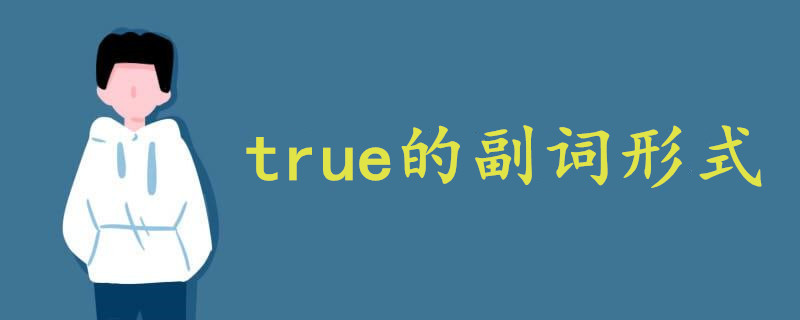true的副词形式为truly。true可作形容词、名词和副词,基本含义有“符合事实的”、“如实的”、“真正的”、“名副其实的”、“直言相告”、“笔直地”、“真实”;truly作为副词,含义有“真诚地”、“衷心地”、“精确”、“确切”。

一、true的基本含义及用法介绍
1、作为形容词时,意为符合事实的;确实的;如实的;实质的,真正的(而非表面上的);名副其实的;真正的。
例句:All the rumours turned out to be true.
所有的传闻结果都确有其事。
He reveals his true character to very few people.
他没有向什么人显露过他的真实性格。
He's a true gentleman.
他是个正人君子。
It's true that he could do the job, but would he fit in with the rest of the team?
他确实能做这项工作,但他是否能和团队其他人配合得好呢?
She has always been true to herself .
她一贯坚持按自己的信念办事。
2、作为副词时,意为笔直地;不偏不斜地;直言相告;实话实说。
例句:The arrow flew straight and true to the target.
箭不偏不斜地朝靶子飞去。
He had spoken truer than he knew.
他说得比他知道的还确切。
3、作为名词,意为真实;准确。
例句:The novel is based on a true story.
这部小说是根据真实的故事写成的。
Which of the following is true according to the author?
在作者看来,以下哪一个是准确的?
二、truly的基本含义及用法介绍
truly作为副词,意为(用于说法、感觉等)真诚地,诚恳地,衷心地;(指性质)真正,确实;(指描述)确切,准确,精确。
例句:I'm truly sorry that things had to end like this.
事情落到这样的结局,我从内心里感到歉疚。
Well, really and truly , things were better than expected.
啊,情况的的确确比预计的要好。
Believe me, Susan, I am truly sorry...
相信我,苏珊,我实在感到抱歉。










